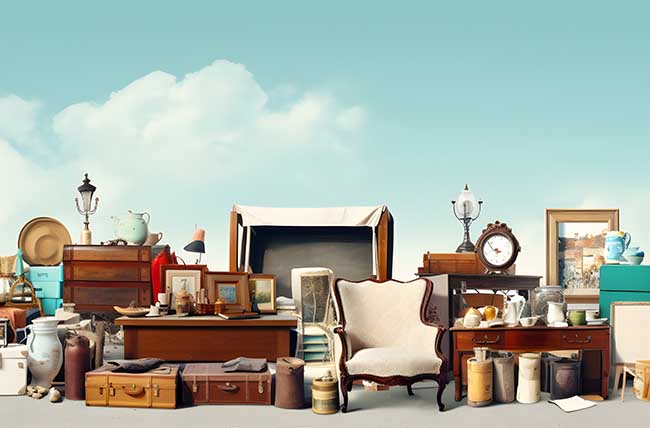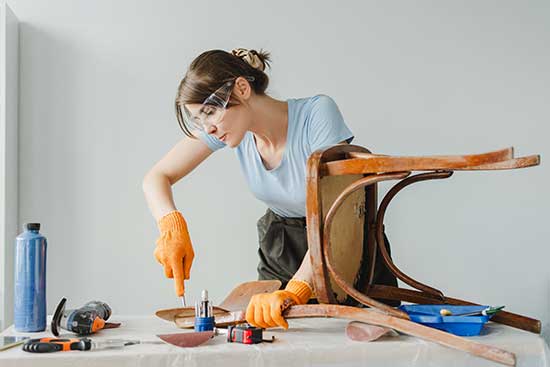Moving to a new home is the perfect time to evaluate what furniture to take with you and what to leave behind. Decluttering can make your house move more efficient, reduce costs, and give you a fresh start in your new space. If you find yourself with unwanted furniture, there are plenty of options available, from selling to donating or repurposing. This guide will help you decide what to do with your unwanted pieces before your big move.
Assess What to Keep and What to Let Go
Before deciding what to do with your furniture, take inventory of all your pieces. Look at each item and ask yourself if it’s something you truly want or need in your new home. Consider whether the furniture fits with your new space, both in terms of style and size. Moving to a smaller home, for example, might mean that some large pieces no longer fit.
Don’t forget to check the condition of your furniture. Items that are damaged or overly worn may not be worth moving. This assessment will help you decide whether each piece is worth taking with you or finding a new home.
Sell Unwanted Furniture
If you have furniture in good condition that you no longer need, selling it can be a great option to make some extra money for your move.
- Online Platforms: Websites like eBay, Facebook Marketplace, and Gumtree are popular for selling used furniture locally. You can post listings with photos and descriptions and arrange for buyers to collect the items.
- Host a Garage Sale: If time permits, consider holding a garage or yard sale. This allows you to sell multiple items at once while clearing out other belongings you no longer need.
- Consignment Shops: For high-quality or vintage pieces, a consignment shop may be a good option. These stores sell items on your behalf and give you a percentage of the sale.
Tip: Good photos and clear descriptions of your items will make your listings more attractive to potential buyers.

Donate to Charity
If selling is not a priority, donating your unwanted furniture to charity can help people in need while providing you with a clutter-free move.
- Charities That Accept Furniture: Organisations such as the British Heart Foundation and The Salvation Army often accept furniture donations and may even offer free collection.
- Local Shelters and Community Groups: Local shelters, community groups, or schools may also benefit from your donation, especially if the furniture is still in good condition.
- Tax Benefits: In some countries, donating to a registered charity may provide you with a tax deduction, so it’s worth checking if this applies in your region.
Consider Giving Furniture to Friends or Family
Sometimes, the people closest to you may benefit from your unwanted furniture.
- Ask Around: Before you sell or donate, ask friends, family, or neighbours if they need any of the items you’re looking to part with.
- Use Social Media: Posting on local social media groups or WhatsApp could help you find someone who could use your unwanted pieces. This way, you know the furniture will continue to be used and appreciated.
Recycle or Repurpose
If your furniture isn’t suitable for donation or sale, recycling or repurposing it may be the next best step.
- Furniture Recycling: Many recycling centres accept large items like furniture. This is a responsible way to dispose of items that can’t be reused in their current form.
- Upcycling Projects: If you’re feeling creative, you can repurpose old furniture into something new. For example, an old chest of drawers could be turned into stylish shelving, or a coffee table could be repainted for a fresh look.

Arrange for Professional Disposal
When other options aren’t viable, professional disposal may be the solution for large or unusable furniture.
- Council Collection Services: Many local councils offer bulk waste collection services for a small fee, and they’ll pick up the items directly from your home.
- Hire a Skip: If you have a large amount of unwanted furniture or other items, hiring a skip may be the most convenient option.
- Licensed Removal Services: Be sure to use licensed waste removal services to avoid illegal dumping (fly-tipping), which can result in fines.
Storage Options
If you’re unsure about some pieces and need more time to decide, storing your furniture temporarily might be a good solution.
- Short-Term Storage: Renting a short-term storage unit allows you to keep your furniture safe while you make decisions about what to do with it.
- Furniture Storage Services: Some companies specialise in storing large items like furniture. These services often offer climate-controlled environments to protect your belongings for longer periods.
Deciding what to do with unwanted furniture before a move can help you declutter and prepare for a smoother transition into your new home. Whether you choose to sell, donate, recycle, or store your items, planning ahead will ensure you don’t waste time or money moving pieces you no longer need. By carefully assessing your furniture and exploring your options, you can reduce the stress of your move and start fresh in your new space.

